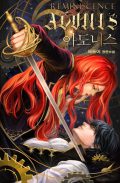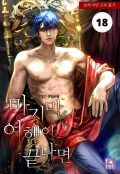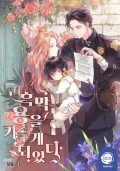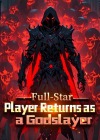226 Chapters Every 6.1 Day(s) 6276 Readers 62 Reviews 12-22-2022
⭐️⭐️⭐️⭐️✩ Okay, I rated this one a 4 but it's really more of a 4.5 or 4.75. There are some great parts and some major... more>> drawbacks.Negatives - First, I haven't finished this one - it's SO long I just got bogged down in the sheer length (I'm writing this now so I don't forget my thoughts on the series before I write an actual review). The writing is also very dense - it's like reading the Lord of the Rings trilogy - which, honestly, is one of my favorites and I have reread it about 4-5 times, but there's also a reason it took me until early college to finally make it all the way through Return of the King - it's like reading poetry rather than prose. Poetry is DENSE - you have to sit with it and think about it and that's exactly what Adonis and LotR are when reading. Both are very introvert style works where an enormous amount of the plot is taking place inside Frodo or Ianna's head, and while this isn't something that's exactly action, it has huge effects on the action later. There's a lot of back and forth between internal drama and outwards drama that really marks the works as philosophy and evolution of both the characters and the writer. I also want to agree strongly with the criticism moonrune said way back in November of 2019 - Adonis SEVERELY suffers from both Smurfette Syndrome and the Not Like The Other Girls nonsense through the writer's impressive misogyny, although you can tell the development of the writer is impressive given how both Priscilla (the roommate) and Angelina (annoying princess) do have redeeming character growth and their own arcs that develop them as people, instead of the Faceless Villainess/Mob characters used only as a contrast to the nobleness and awesomeness of the heroine. It's incredibly annoying because you see all the male characters given actual backstory and personalities while the few female characters are initially caricatures that could have been pulled out of a file and a new name slapped on them before use, and this doesn't change significantly until we get to the Exchange Student Arc that any of the female characters are written as people instead of background scenery and not until the Going To The West Beastmen Arc that we are given any adult female characters that have their own motivations and goals. Personally I can forgive a LOT if the author later genuinely fixes flaws in their writing like developing characters in a logical way, and Adonis did that. I would have to say my main problem goes back to the similarities to LotR - it's long, there's a LOT that happens that can't be reasonably summarized because yes, it *is* important to the plot, and it ends up taking so long to get through all of it that I eventually end up wandering away because I'm fed up with the lack of a conclusion. You can only be super interested and living in anticipation of the next twist for so long, and Adonis goes on entirely too long.One of the really good points in Adonis is that the book *is* so philosophy-heavy. It's very introspective and it's fascinating watching Ianna mull over things obsessively - she has to think everything to death and poke all the holes in her own points of view that she can, and then find a way forward that uses what she learns to improve herself and change her worldview. This is very much a shonen anime style philosophy - she fights, has a setback, and then goes and trains using the new information she learned from her setback to change how she approaches things. Herrace is a great example of his growth - he is probably the weakest character for the first few books, and then has a galvanizing moment in the Sidian Arc that completely flips his worldview, and he uses that impetus to become the incredibly strong character that he becomes later. I do love that the whole time Ianna tells him over and over that a sword is meant for killing - part of becoming a swordsman, as Herrace has dedicated his life to, is going to involve killing people - but until the end of the trip through Sidian that it finally clicks and Herrace can overcome his reluctance. The character growth of all the major characters is significant, and the plot becomes so much richer as the do so. It's remarkably well done in the case of the contrast between Arhad in the original timeline and the current one - he starts out very 2D and it's on purpose - Arhad has no motivation other than his obsession to unite the Demon fragments and his obsession with Ianna ends up impacting that, but his thought process at the time is very if-then-else - he HAS to finish the Demon and defeat Bahamut and only THEN can he pursue Ianna, which ends up backfiring rather spectacularly in the past. In the current timeline, he becomes less and less robotic as he is around Ianna and dragged along with her and her gang in the crazy stuff that happens - it the impetus for his character growth and he learns how to have emotions other than obsession and begins to operate with thoughts other than just cold logic. He changes Ianna and Ianna changes him, although he never becomes less than obsessive and is still a very cold individual, but at least he's not a robot anymore. I don't feel like Arhad's evolution is complete until the Kingdom Founding Arc, so think of that what you will. It's also kind of adorable that the cold, unfeeling hero is also a ball of anxious terror that he's going to piss off or lose his girl, so that's nice - I do so love it when they flip the script.
<<less




